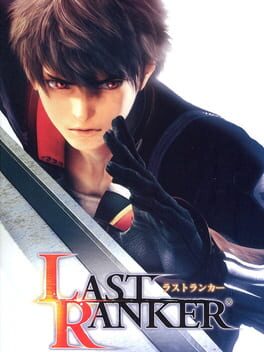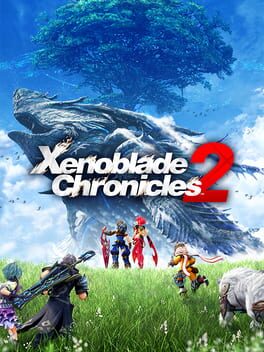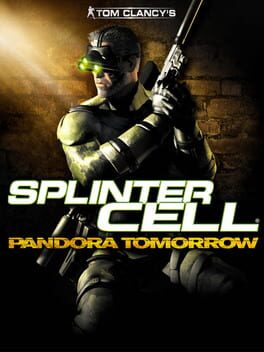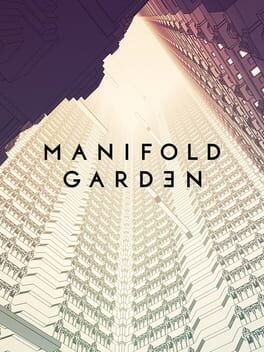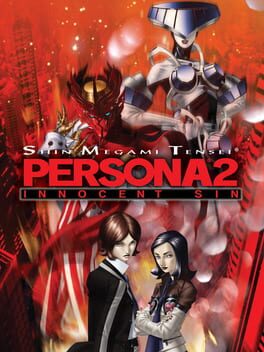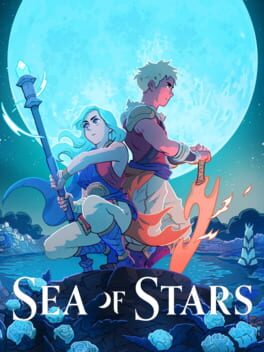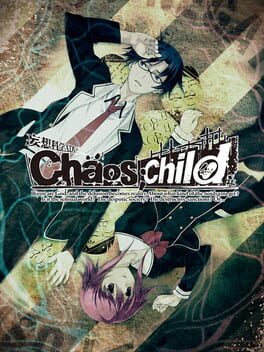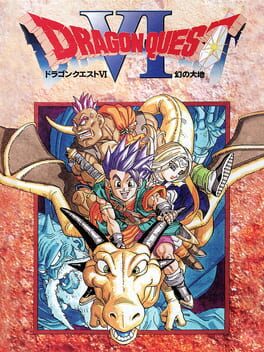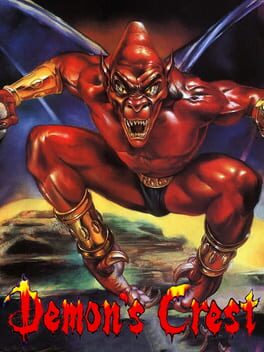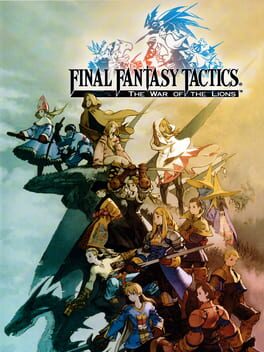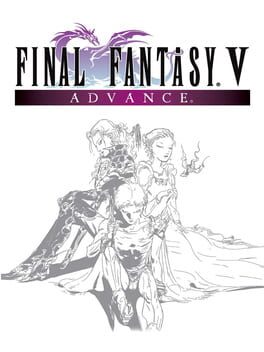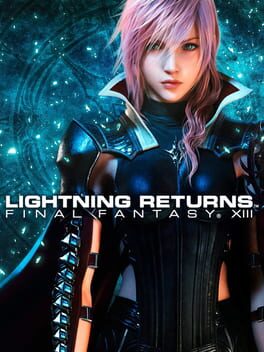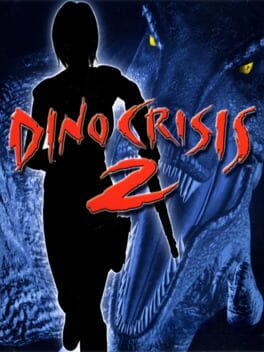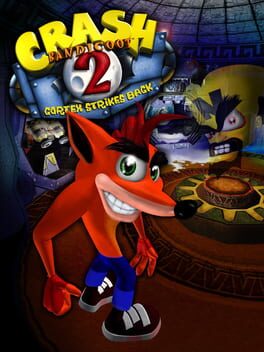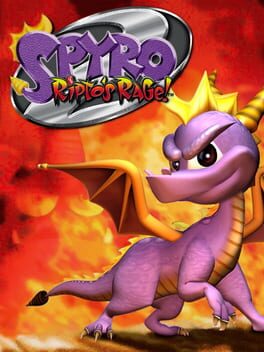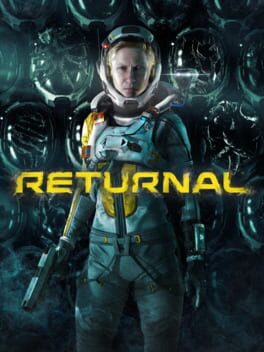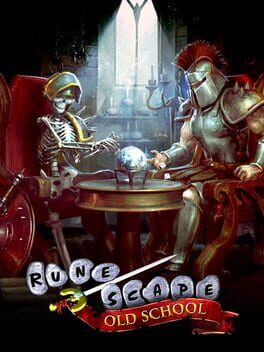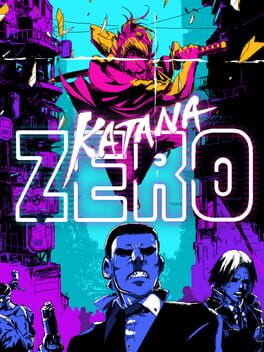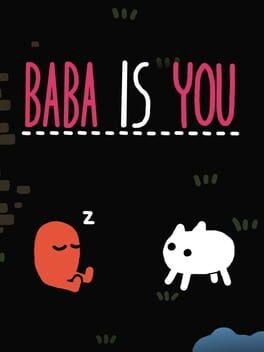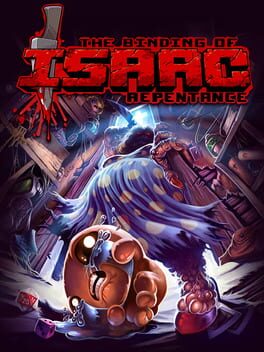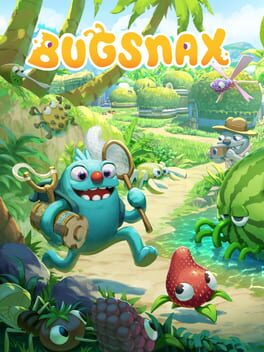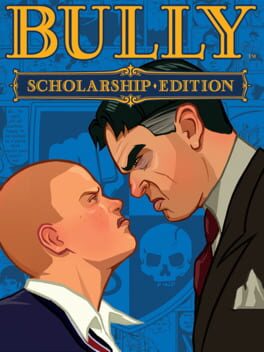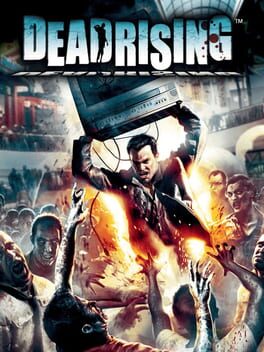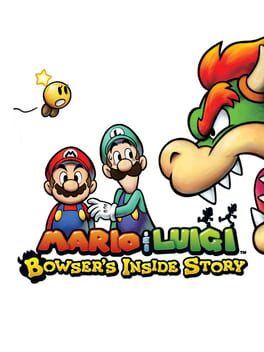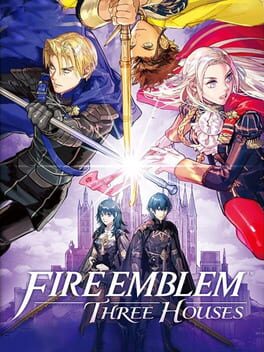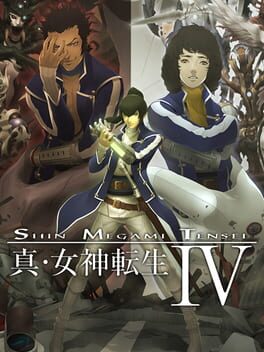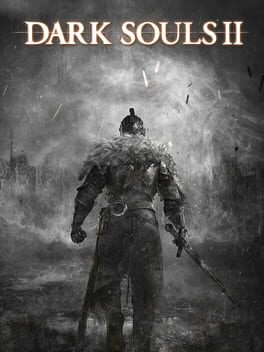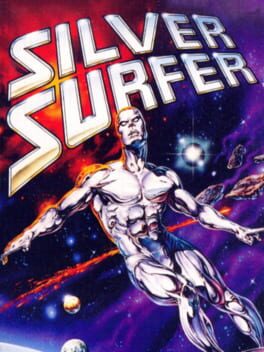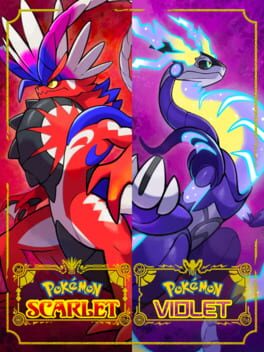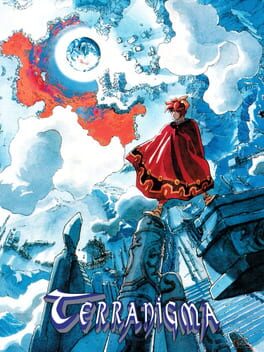Radiohans
116 reviews liked by Radiohans
Last Ranker
2010
Something about this game is really working for me. One of the better Action RPG battle systems I’ve tried; it’s Active but all timing and button-based as opposed to menus or positioning. Kind of like a Mario RPG cranked up to 11. The world and colors are what really sucked me in — has bits of charm and polish that remind me of FF12 and Rogue Galaxy. Not sure what these games all have in common but it’s a microgenre that I love.
Do you ever stumble in one of those games that, despite not being perfect, it manages to cover certain specific things in such a smashingly perfect way that you can't help but give it the highest score ? Xenoblade Chronicles 2 is that game.
It has debated to hell and back how this game is definitely less balanced than its predecessor, especially due to its slow start and the not-exactly-ideal tutorials which omit some key info and also feel more tedious than they could've been if streamlined better. Yet, despite this, Xenoblade 2 managed to slip into my heart, right next to the first game.
The graphics, of course, make full display of the artistic creativity of Monolith Soft, which is able to put very unique spins on what could feel like familiar views in any other JRPGs, where the classic green plains are placed on the back of an enormous quadrupedal titan, while a complex set of caves, a massive lake and a medieval town are all stored inside the stomach of a huge whale-like beast.
The character-design has been another source of debate, but I've never found it bad, if anything I welcome a JRPG protagonist that seems to be coming out of the 90's in terms of weird, yet uniquely striking fashion. I prefer it to normal-looking clothes at the very least. The rest of the cast pretty much follow suit, going for an unapologetic vibe that fits the previous works of the main character designer, while also featuring some guest artists for some of the non-story Blades, including Tetsuya Nomura at his best on designing the main villains of the game.
As with the first game, the title shines in its main story cutscenes where the animators display an amazing craft in how they handle expressions and movements. I've been a huge fan of their direction ever since the first game.
The gameplay is where those previously mentioned problems start to pop up. Xenoblade 2 isn't a bad game, it's legit great once you understand its mechanics, but it's one of those games that will give to you as much as you're willing to give it back in return. its battle system based on elemental combos requires constant attention and a familiarity of the roles and abilities of the different blades, which can be unlocked through the story, side quests or through an in-game gacha system (one that thankfully doesn't involve real money).
Each blade is also crucial for exploring the world as, depending by their skills, they'll be able to unlock shortcuts or secret passages, some of which will be mandatory for some of the side quests. It's a very intriguing system, but unlocking the different abilities and tiers will take time and the game might sometime block the player's progress because of this, forcing them to grind away at the requirements to unlock the abilities needed to progress.
It all feels a bit too tedious for most people, while others might find themselves just vibing with the game and exploring around, clearing side quests and finding all the side-story content that the different blades will unlock through their own requirements.
For people that will be willing to put in some time, Xenoblade 2 will have lots of rewards of course, but it's undeniable that it won't be worth everyone's time, especially as the game sometimes does lack a bit of guidance as mentioned before.
The other side of contempt regards the game's story, which takes quite a bit to get going. It's not bad by any means, but the first part of the game is clearly a huge, careful setup that, much like its gameplay, will reward people who will be patient enough to wait for the game's plot to be ripe enough and show its real flavor, which, to be honest, has moved me to tears, as the characters shown their motivations and stories. Unluckily it's hard to talk about the plot without spoiling anything and one might have to make their own essay about just the plot of the game, as it's rich with interconnected themes about one's purpose, life, death and the dramatic nature of a Blade's life. It's a hell of a ride once it gets going, I assure you.
All of this is topped by an absolutely fantastic soundtrack. It shouldn't be a surprise given the track record of the series, but this second title manages to repeat the success of the first game, by having several bangers in its song selections, both in battle themes and location themes, as well as its emotional tunes.
The lows of Xenoblade 2 are quite low due to an excessively tedious gameplay loop that might scare most at first and a plot that has a slow start, but the highs are also among the highest I've ever experienced in the genre. it's worth all of it in my opinion and it's one of those special games that, despite having quite a few crucial gripes, manages to hit me right in the heart and has been worth the whole experience.
It has debated to hell and back how this game is definitely less balanced than its predecessor, especially due to its slow start and the not-exactly-ideal tutorials which omit some key info and also feel more tedious than they could've been if streamlined better. Yet, despite this, Xenoblade 2 managed to slip into my heart, right next to the first game.
The graphics, of course, make full display of the artistic creativity of Monolith Soft, which is able to put very unique spins on what could feel like familiar views in any other JRPGs, where the classic green plains are placed on the back of an enormous quadrupedal titan, while a complex set of caves, a massive lake and a medieval town are all stored inside the stomach of a huge whale-like beast.
The character-design has been another source of debate, but I've never found it bad, if anything I welcome a JRPG protagonist that seems to be coming out of the 90's in terms of weird, yet uniquely striking fashion. I prefer it to normal-looking clothes at the very least. The rest of the cast pretty much follow suit, going for an unapologetic vibe that fits the previous works of the main character designer, while also featuring some guest artists for some of the non-story Blades, including Tetsuya Nomura at his best on designing the main villains of the game.
As with the first game, the title shines in its main story cutscenes where the animators display an amazing craft in how they handle expressions and movements. I've been a huge fan of their direction ever since the first game.
The gameplay is where those previously mentioned problems start to pop up. Xenoblade 2 isn't a bad game, it's legit great once you understand its mechanics, but it's one of those games that will give to you as much as you're willing to give it back in return. its battle system based on elemental combos requires constant attention and a familiarity of the roles and abilities of the different blades, which can be unlocked through the story, side quests or through an in-game gacha system (one that thankfully doesn't involve real money).
Each blade is also crucial for exploring the world as, depending by their skills, they'll be able to unlock shortcuts or secret passages, some of which will be mandatory for some of the side quests. It's a very intriguing system, but unlocking the different abilities and tiers will take time and the game might sometime block the player's progress because of this, forcing them to grind away at the requirements to unlock the abilities needed to progress.
It all feels a bit too tedious for most people, while others might find themselves just vibing with the game and exploring around, clearing side quests and finding all the side-story content that the different blades will unlock through their own requirements.
For people that will be willing to put in some time, Xenoblade 2 will have lots of rewards of course, but it's undeniable that it won't be worth everyone's time, especially as the game sometimes does lack a bit of guidance as mentioned before.
The other side of contempt regards the game's story, which takes quite a bit to get going. It's not bad by any means, but the first part of the game is clearly a huge, careful setup that, much like its gameplay, will reward people who will be patient enough to wait for the game's plot to be ripe enough and show its real flavor, which, to be honest, has moved me to tears, as the characters shown their motivations and stories. Unluckily it's hard to talk about the plot without spoiling anything and one might have to make their own essay about just the plot of the game, as it's rich with interconnected themes about one's purpose, life, death and the dramatic nature of a Blade's life. It's a hell of a ride once it gets going, I assure you.
All of this is topped by an absolutely fantastic soundtrack. It shouldn't be a surprise given the track record of the series, but this second title manages to repeat the success of the first game, by having several bangers in its song selections, both in battle themes and location themes, as well as its emotional tunes.
The lows of Xenoblade 2 are quite low due to an excessively tedious gameplay loop that might scare most at first and a plot that has a slow start, but the highs are also among the highest I've ever experienced in the genre. it's worth all of it in my opinion and it's one of those special games that, despite having quite a few crucial gripes, manages to hit me right in the heart and has been worth the whole experience.
Drakengard
2003
This game really is as bad as people say it is. Gameplay sucks, music sucks, story isn't all that interesting. One of the worst games I've played. I guess one good note is that there was a character I did kinda feel sorry for but that's about it. I managed to get 4 of the 5 endings at least.(I'm not collecting every weapon that's absurd) Guess someone could argue that ludo narratively this game is great but it doesn't matter if your game is bad and has awful music in my opinion. Would recommend you play if you hate yourself
Persona 3 Reload
2024
This remake takes everything that made the original game special and throws it all in the trash. Not only is the soundtrack worse (color your night and its going down now are the only better ones), but Tartarus, which was the only part that needed to get better (although I didn't find it boring in the original game), feels and plays worse because the floors are bigger and slower to go through and the enemies are too easy to fight and avoid, so, unlike in the original, I didn't feel the need to fight at all.
The overworld doesn't look interesting anymore, and all the atmosphere of the original is gone. I just feel like there are too many people, and that the isolated and lonely look that the city had in the original was better because it set the perfect tone for the story and its themes. The voice acting is worse, with Akihiko's voice sounding too deep (and in general, the whole cast sounding a bit worse, imo); the new in-engine cutscenes that replace the animated ones are executed badly and lack emotion, for example, the intro scene, which was, at least in my opinion, one of the best ones, gets ruined because of Yukari talking and ruining all the tension that was created in the old one.
I don't think I'll ever understand the hype for this remake since almost everything that it tries to improve was done better in the original game.
The overworld doesn't look interesting anymore, and all the atmosphere of the original is gone. I just feel like there are too many people, and that the isolated and lonely look that the city had in the original was better because it set the perfect tone for the story and its themes. The voice acting is worse, with Akihiko's voice sounding too deep (and in general, the whole cast sounding a bit worse, imo); the new in-engine cutscenes that replace the animated ones are executed badly and lack emotion, for example, the intro scene, which was, at least in my opinion, one of the best ones, gets ruined because of Yukari talking and ruining all the tension that was created in the old one.
I don't think I'll ever understand the hype for this remake since almost everything that it tries to improve was done better in the original game.
This review contains spoilers
Coming from one of the most aggressively average games ever made, I didn't expect this to be much more than an expansion pack disguised as a sequel to give people something before the actual sequel got released. I mean, Pandora Tomorrow is exactly that (it wasn't even made by the same studio that made both Splinter Cell and Chaos Theory), but what I didn't expect is for it to be worse than the previous game.
First off, mechanically it is exactly the same. Yes, it has some new things but those are merely details or gimmicks used for certain situations, but not something meaningful. One good thing I'll say about this one is that it is less restrictive than the previous game. The three alert-limit is still there, but if you don't raise the alarm too continuously it will be reset back to 0, and now with each of the three stages of the limit before it's game over, enemies will start wearing bulletproof vests after the first alert and helmets after the second one. When you reach the third stage it is game over, obviously. And while this is a much better approach than last time, not only half of the levels are still “trip the alarm once and it's game over”, but also I find it really stupid how after having spotted the bodies of various of their comrades, they still decide to reset the alert level to 0 like nothing happened.
I don't know how, but they fucked up the enemy AI. For some reason, if you kill someone, regardless if you killed it in the shadows or under the light, if there's another enemy around, he will know where the body is and go there to raise the alert level, or they will even spot the body from afar anyways, who cares. These time they are way too sensitive to anything you do. If you knock-out someone in the shadows they'll STILL notice it if it's somewhere near, even if there's a wall in-between. In the original Splinter Cell, the enemy AI could be exploited in some ways that made them look stupid, but it worked since it was a really, really straightforward and linear experience. Don't get me wrong, it's still straightforward and linear, it's just that now they've gotten smarter. They also used to move erratically and unpredictably when you alerted them, which is something more notorious this time around. The whistle button is, probably, the only useful addition this game has is necessary to walk past certain enemies, and will come in handy for these moments, and they happen very often, so now you'll need to become best friends with the whistle button, and if you don't you'll get many, many game over screens.
It still has a lot of gimmicky set-pieces (although maybe less than in the previous game), and it still has a lot of trial and error. Especially this last one. It has a fuck-ton of trial and error. More and more annoying than before. Since enemy AI is smarter, now you'll need to make millimetrical movements and follow the script without failing just once if you don't want to get noticed. This wouldn't be so problematic if enemies didn't drain all your health and effectively kill you so goddamn fast, but they do, and when the alarm goes off, soldiers will come from out of nowhere to kill you. This got to a point of annoyance where I dreaded about the simple thought of inserting the game disc. I didn't want to play this.
All this makes an already bad game an even worse one, but what is significantly worse is the story. The story in the first Splinter Cell was so ridiculously basic, uninspired and generic that I wasn't paying much attention to whatever super-serious crimes were being committed by super-serious terrorists with super-serious plans. It was cheesy more times than anything, but it did get me interested enough to finish it. This made the patriotic propaganda more bearable. But this time the story is bad, it's really bad, and the propaganda levels are off the charts. If we decide to look at this as a simple story, putting the propaganda aside, it is bad. No character has any personality or development, the conflict is poorly told and extremely overdone, the enemy leaders are so cartoonishly evil that it's ridiculous. Nothing about it works. But then, there's the propaganda. Every character is constantly reminding you that you're working for THE GOOD GUYS™ while the other factions are THE BAD GUYS™. Obviously, what THE BAD GUYS™ want is to destroy the free world, end democracy and kill a lot of innocent people in the way. Of course that's what they want! That's what real life leaders against American interventionism have always wanted! To kill people! Mindless murderers! How barbaric those third world leaders are, and how great are we, Americans who fight for the freedom of the world! I think I might need to rethink the ratings I gave to all those COD games. I know this isn’t strange considering the Tom Clancy label plastered on the title, but like, it's so blatantly morally corrupt that it becomes genuinely disgusting. It's black or white, no greyscale, no good intentions, no nuance, no nothing, they're just bad because bad.
After the main conflict starts with the takeover of the American embassy in Indonesia by generic third world revolutionary leader in protest of having an American military base in their country (something I also happen to have here where I live, relatively close to my home in fact, and I wish was gone), it is revealed they have stolen smallpox from a cryogenic lab in France to threaten the US with releasing it and then you go to Israel and get betrayed by the Israeli Secret Service and the you go to Indonesia to do a bunch of stuff and then you capture the bad guy and in the last level you kill the other bad guy in an extremely anticlimactic shootout where he dies unceremoniously despite planting a virus-bomb in the L.A. Airport. There, I summarized the 10-hours plot. It is as generic as it sounds. Everything is so anticlimactic that it feels like they forgot what was even the point of all this halfway through and just gave up. I didn't connect to anything I was presented to the point where I really, really did not care about whatever happened to any of these characters or if the entire world blew up.
One of the worst things that can happen to any narrative in general, is having yourself in the situation where you actively think to yourself “I do not care about whatever happens to these people” while playing. And that's the feeling I had during the entire game. I just wanted it to be over. Nothing about it engaged me. It is miserable as a game. It is miserable as a story. And still, someone will compare it to Metal Gear just because it's a stealth game and there's a guy in a sneaking suit or whatever superfluous details. But this is indeed the perfect Metal Gear-like for all the people who entirely missed the point of Metal Gear.
First off, mechanically it is exactly the same. Yes, it has some new things but those are merely details or gimmicks used for certain situations, but not something meaningful. One good thing I'll say about this one is that it is less restrictive than the previous game. The three alert-limit is still there, but if you don't raise the alarm too continuously it will be reset back to 0, and now with each of the three stages of the limit before it's game over, enemies will start wearing bulletproof vests after the first alert and helmets after the second one. When you reach the third stage it is game over, obviously. And while this is a much better approach than last time, not only half of the levels are still “trip the alarm once and it's game over”, but also I find it really stupid how after having spotted the bodies of various of their comrades, they still decide to reset the alert level to 0 like nothing happened.
I don't know how, but they fucked up the enemy AI. For some reason, if you kill someone, regardless if you killed it in the shadows or under the light, if there's another enemy around, he will know where the body is and go there to raise the alert level, or they will even spot the body from afar anyways, who cares. These time they are way too sensitive to anything you do. If you knock-out someone in the shadows they'll STILL notice it if it's somewhere near, even if there's a wall in-between. In the original Splinter Cell, the enemy AI could be exploited in some ways that made them look stupid, but it worked since it was a really, really straightforward and linear experience. Don't get me wrong, it's still straightforward and linear, it's just that now they've gotten smarter. They also used to move erratically and unpredictably when you alerted them, which is something more notorious this time around. The whistle button is, probably, the only useful addition this game has is necessary to walk past certain enemies, and will come in handy for these moments, and they happen very often, so now you'll need to become best friends with the whistle button, and if you don't you'll get many, many game over screens.
It still has a lot of gimmicky set-pieces (although maybe less than in the previous game), and it still has a lot of trial and error. Especially this last one. It has a fuck-ton of trial and error. More and more annoying than before. Since enemy AI is smarter, now you'll need to make millimetrical movements and follow the script without failing just once if you don't want to get noticed. This wouldn't be so problematic if enemies didn't drain all your health and effectively kill you so goddamn fast, but they do, and when the alarm goes off, soldiers will come from out of nowhere to kill you. This got to a point of annoyance where I dreaded about the simple thought of inserting the game disc. I didn't want to play this.
All this makes an already bad game an even worse one, but what is significantly worse is the story. The story in the first Splinter Cell was so ridiculously basic, uninspired and generic that I wasn't paying much attention to whatever super-serious crimes were being committed by super-serious terrorists with super-serious plans. It was cheesy more times than anything, but it did get me interested enough to finish it. This made the patriotic propaganda more bearable. But this time the story is bad, it's really bad, and the propaganda levels are off the charts. If we decide to look at this as a simple story, putting the propaganda aside, it is bad. No character has any personality or development, the conflict is poorly told and extremely overdone, the enemy leaders are so cartoonishly evil that it's ridiculous. Nothing about it works. But then, there's the propaganda. Every character is constantly reminding you that you're working for THE GOOD GUYS™ while the other factions are THE BAD GUYS™. Obviously, what THE BAD GUYS™ want is to destroy the free world, end democracy and kill a lot of innocent people in the way. Of course that's what they want! That's what real life leaders against American interventionism have always wanted! To kill people! Mindless murderers! How barbaric those third world leaders are, and how great are we, Americans who fight for the freedom of the world! I think I might need to rethink the ratings I gave to all those COD games. I know this isn’t strange considering the Tom Clancy label plastered on the title, but like, it's so blatantly morally corrupt that it becomes genuinely disgusting. It's black or white, no greyscale, no good intentions, no nuance, no nothing, they're just bad because bad.
After the main conflict starts with the takeover of the American embassy in Indonesia by generic third world revolutionary leader in protest of having an American military base in their country (something I also happen to have here where I live, relatively close to my home in fact, and I wish was gone), it is revealed they have stolen smallpox from a cryogenic lab in France to threaten the US with releasing it and then you go to Israel and get betrayed by the Israeli Secret Service and the you go to Indonesia to do a bunch of stuff and then you capture the bad guy and in the last level you kill the other bad guy in an extremely anticlimactic shootout where he dies unceremoniously despite planting a virus-bomb in the L.A. Airport. There, I summarized the 10-hours plot. It is as generic as it sounds. Everything is so anticlimactic that it feels like they forgot what was even the point of all this halfway through and just gave up. I didn't connect to anything I was presented to the point where I really, really did not care about whatever happened to any of these characters or if the entire world blew up.
One of the worst things that can happen to any narrative in general, is having yourself in the situation where you actively think to yourself “I do not care about whatever happens to these people” while playing. And that's the feeling I had during the entire game. I just wanted it to be over. Nothing about it engaged me. It is miserable as a game. It is miserable as a story. And still, someone will compare it to Metal Gear just because it's a stealth game and there's a guy in a sneaking suit or whatever superfluous details. But this is indeed the perfect Metal Gear-like for all the people who entirely missed the point of Metal Gear.
Manifold Garden
2019
The depiction of an endless world here is really beautiful, there is no end nor start to the huge megastructures you traverse through, in fact, falling into the void to get on a platform you couldn't reach is a main mechanic, as the world loops over itself. Time and space have no meaning, both don't have a defined start or ending, they are simply there while you walk through them until you finally reach your goal. Or perhaps it isn't really as much of a goal as it is an inevitability. Life tends to end one way or another, even if you could life forever in an equally never-ending world, sooner or later you'll want it to be over. The scale can make you feel insignificant, but you can still bring some life and beauty to a meaningless world and give it some meaning.
Illogical architecture mixed with constantly shifting gravity plus some really, really beautiful landscapes make for a really innovative and creative puzzle game. Unfortunately, you get used to the puzzle mechanics and everything described above stops working as great as it could have at the start. The endlessness cannot be understood, you can't - or more likely, you shouldn't - get used to it. For a world as illogical as this, everything seems to work under a defined set of rules. This could be subtext on how everything in nature is defined to work in a certain way. For example, zebras have black stripes over white skin to hide better from hunters, this is something that nobody who has ever been alive has decided, it is mostly accepted as something that simply is, the same way the world of Manifold Garden is supposed to not have been created by someone but is heavily based on clearly defined rules that seem to hold a greater purpose, that purpose being to get you to reach the end. There's always an intention to everything.
The purpose of the world is perfectly defined and understandable but it wants you to think it's incomprehensible, your small size in comparison to the eternal world pretends to represent how small you actually are in comparison to the grand scheme of things, but fails because conceiving infinity is rather impossible yet Manifold Garden reduces it to a bunch of gravity and colour block puzzles. Despite all great that I said in the last two paragraphs, that is mostly stuff I've thought of while writing this, not while playing the game. That is the problem of depicting the endless as a defined set of rules, that this ends up feeling more like a technical showoff rather than a tale on passing through an unintelligible and seemingly illogical world. The greatly executed mind-bending puzzles are the real meat here. The effort is commendable, but the intention of the world can be understood really fast, as it just is to get you to the next level and consequently the ending. This is a game about contemplating the vastness of the universe in which the universe itself looks huge and bigger than life but is actually all about getting from one chamber to another. Portal if it was about shifting gravity and bizarre architecture.
Maybe the real problem of depicting something as abstract as the endless isn't that we can't associate it with something, but rather the human part of the work in which everything has to serve a purpose as specific as getting the player to the next level. I had my solid time with the puzzles tho.
Illogical architecture mixed with constantly shifting gravity plus some really, really beautiful landscapes make for a really innovative and creative puzzle game. Unfortunately, you get used to the puzzle mechanics and everything described above stops working as great as it could have at the start. The endlessness cannot be understood, you can't - or more likely, you shouldn't - get used to it. For a world as illogical as this, everything seems to work under a defined set of rules. This could be subtext on how everything in nature is defined to work in a certain way. For example, zebras have black stripes over white skin to hide better from hunters, this is something that nobody who has ever been alive has decided, it is mostly accepted as something that simply is, the same way the world of Manifold Garden is supposed to not have been created by someone but is heavily based on clearly defined rules that seem to hold a greater purpose, that purpose being to get you to reach the end. There's always an intention to everything.
The purpose of the world is perfectly defined and understandable but it wants you to think it's incomprehensible, your small size in comparison to the eternal world pretends to represent how small you actually are in comparison to the grand scheme of things, but fails because conceiving infinity is rather impossible yet Manifold Garden reduces it to a bunch of gravity and colour block puzzles. Despite all great that I said in the last two paragraphs, that is mostly stuff I've thought of while writing this, not while playing the game. That is the problem of depicting the endless as a defined set of rules, that this ends up feeling more like a technical showoff rather than a tale on passing through an unintelligible and seemingly illogical world. The greatly executed mind-bending puzzles are the real meat here. The effort is commendable, but the intention of the world can be understood really fast, as it just is to get you to the next level and consequently the ending. This is a game about contemplating the vastness of the universe in which the universe itself looks huge and bigger than life but is actually all about getting from one chamber to another. Portal if it was about shifting gravity and bizarre architecture.
Maybe the real problem of depicting something as abstract as the endless isn't that we can't associate it with something, but rather the human part of the work in which everything has to serve a purpose as specific as getting the player to the next level. I had my solid time with the puzzles tho.
Yume Nikki
2004
Leaves a ton of space for your imagination to run wild in which is likely why so many people have vastly different experiences with this game. When so much is left up to interpretation, your brain can't help but fill in the lines itself.
My personal experience with the game is one of feeling incredibly isolated and displaced within the world while also being comforted by an abstract warmth, almost as if I am being hugged by a childhood friend with whom I had lost all communication with but who's memory has lived within myself and shielded me in ways over the years that I've never been cognizant of.
I now understand why a common joke is that Yume Nikki's biggest fans are all schizophrenic.
My personal experience with the game is one of feeling incredibly isolated and displaced within the world while also being comforted by an abstract warmth, almost as if I am being hugged by a childhood friend with whom I had lost all communication with but who's memory has lived within myself and shielded me in ways over the years that I've never been cognizant of.
I now understand why a common joke is that Yume Nikki's biggest fans are all schizophrenic.
A bit of a mixed bag as I didn't care much for how slow the battles felt and the method of acquiring new Personas was quite tedious; however, the narrative and character writing was fantastic and the ending was such a great cliffhanger that has me very excited to dip into Eternal Punishment. I had heard about how ridiculous some of the plot events within this game were prior to starting it but really didn't expect it to escalate quite as much as it did. Also, I don't hear this mentioned much when people talk about this game, but it's sometimes just really funny? I was quite surprised by how much humor there is in this game and honestly it contrasts quite well with the grim tone that's often present.
Sea of Stars
2023
Sea of Stars feels like it was synthesized in a lab to be the 'perfect JRPG' and while it certainly follows a well known formula, it's also missing any kind of unique ingredient to make it stand out. Might get around to finishing it just for the sake of it, but my time with the game so far has been a very sterile and uninteresting experience. The music and graphics are pretty nice though. If you want a 16/32-bit JRPG love letter, I'd recommend Chained Echoes instead.
Mother 3
2006
8 lists liked by Radiohans
by NOWITSREYNTIME17 |
26 Games
by Maurith |
6 Games
by Detectivefail |
25 Games
by stovetop |
18 Games
by HunterMask |
16 Games
by hotpoppah |
21 Games
by Odyssey3004 |
22 Games
by hilda |
30 Games
